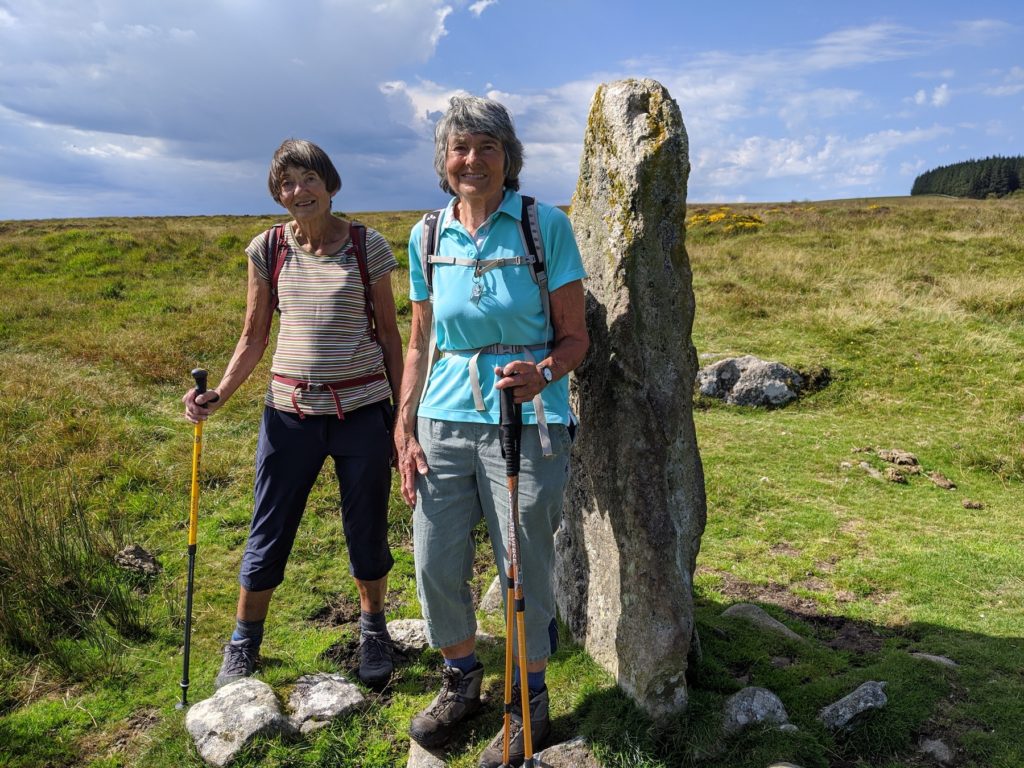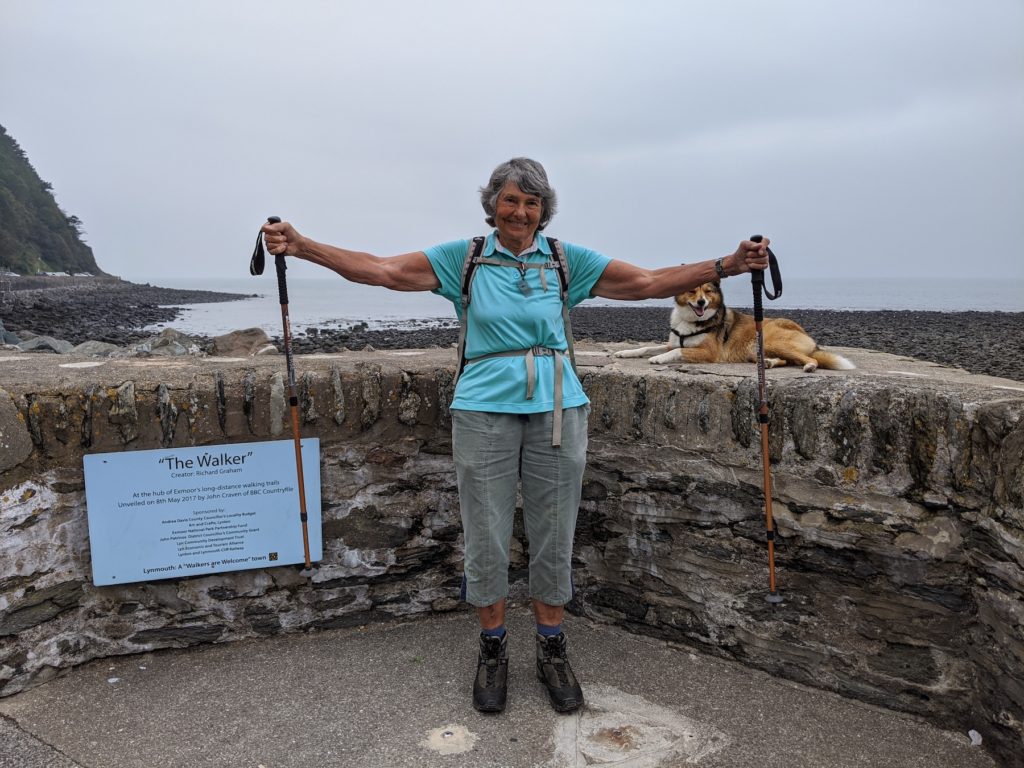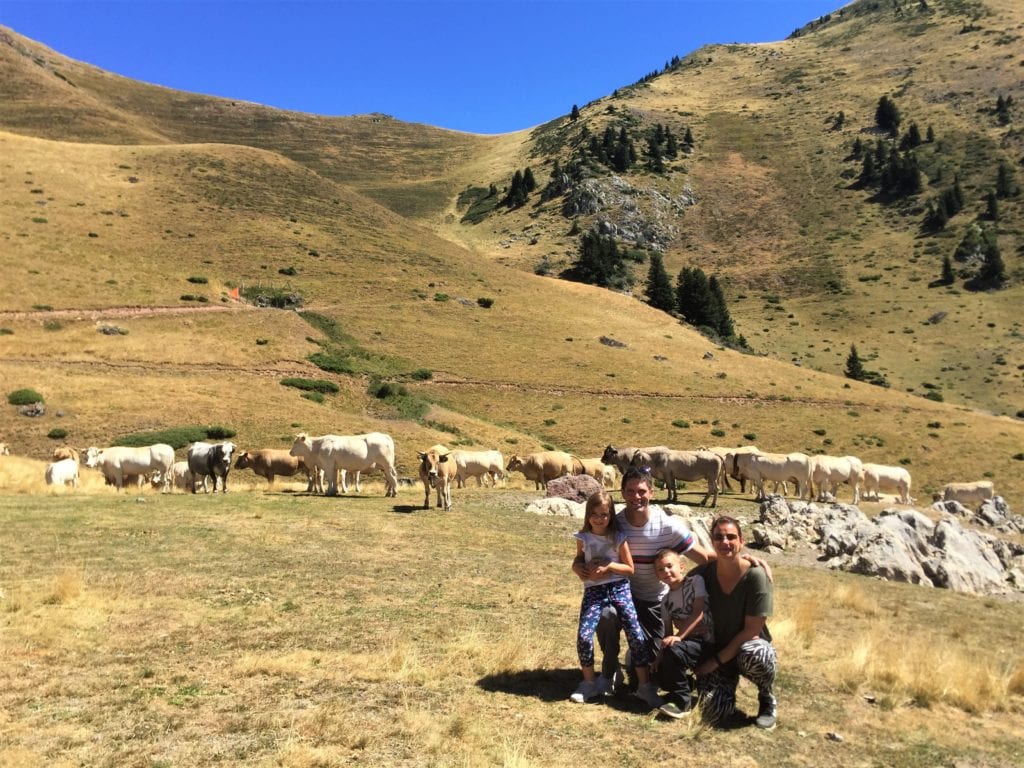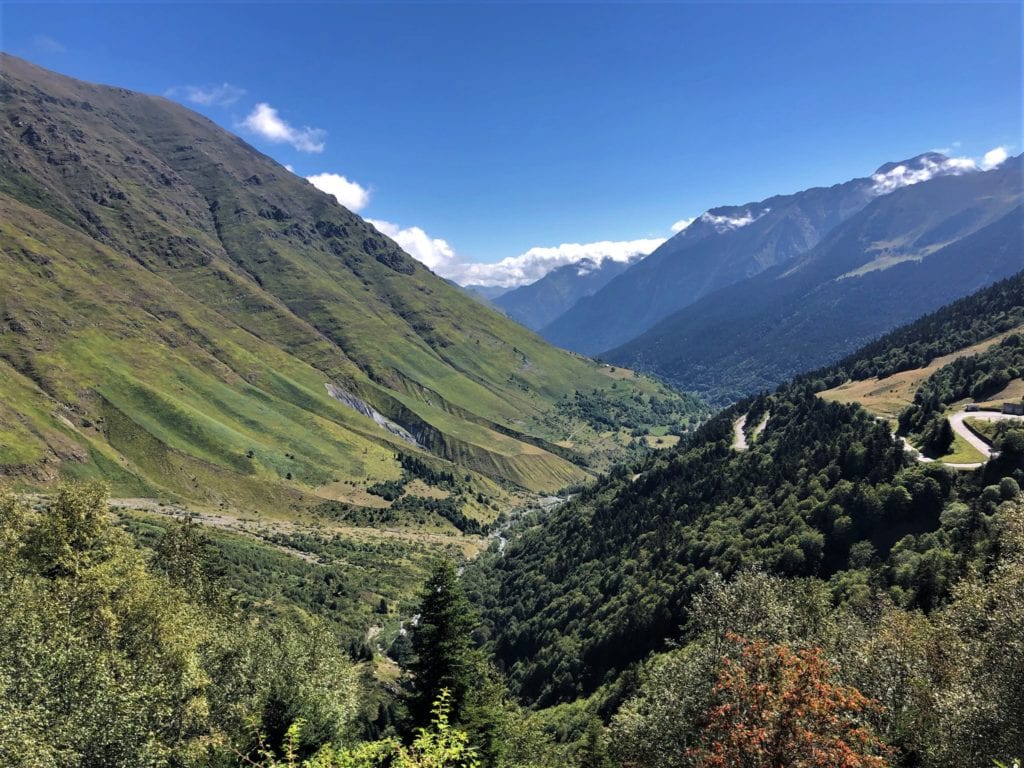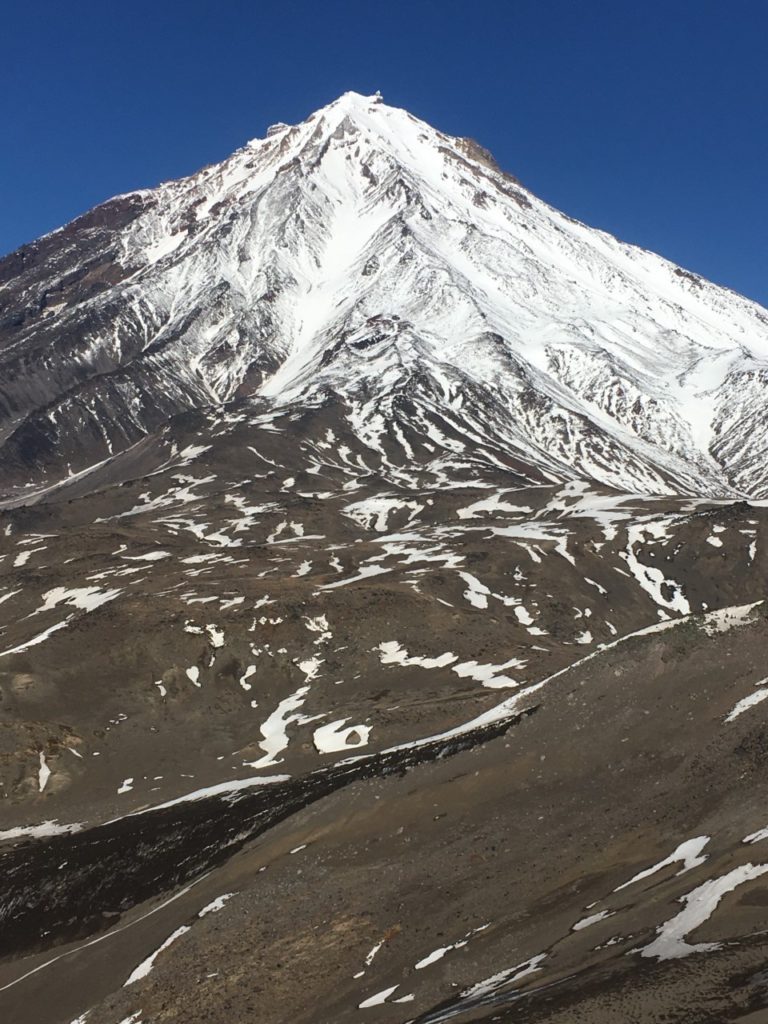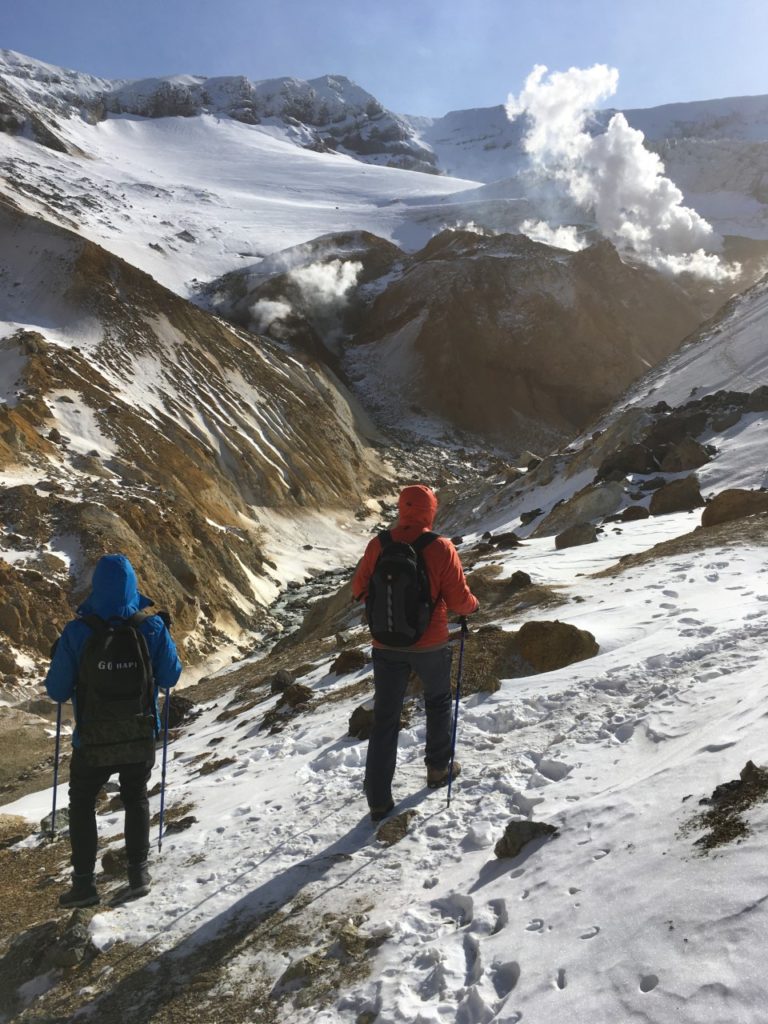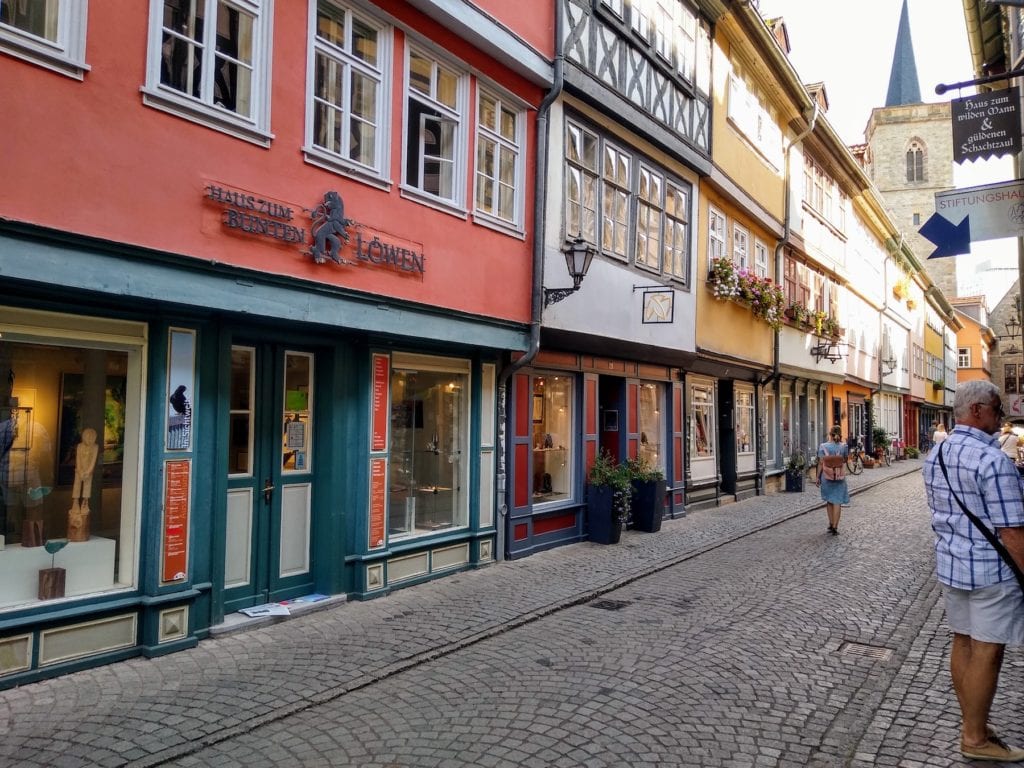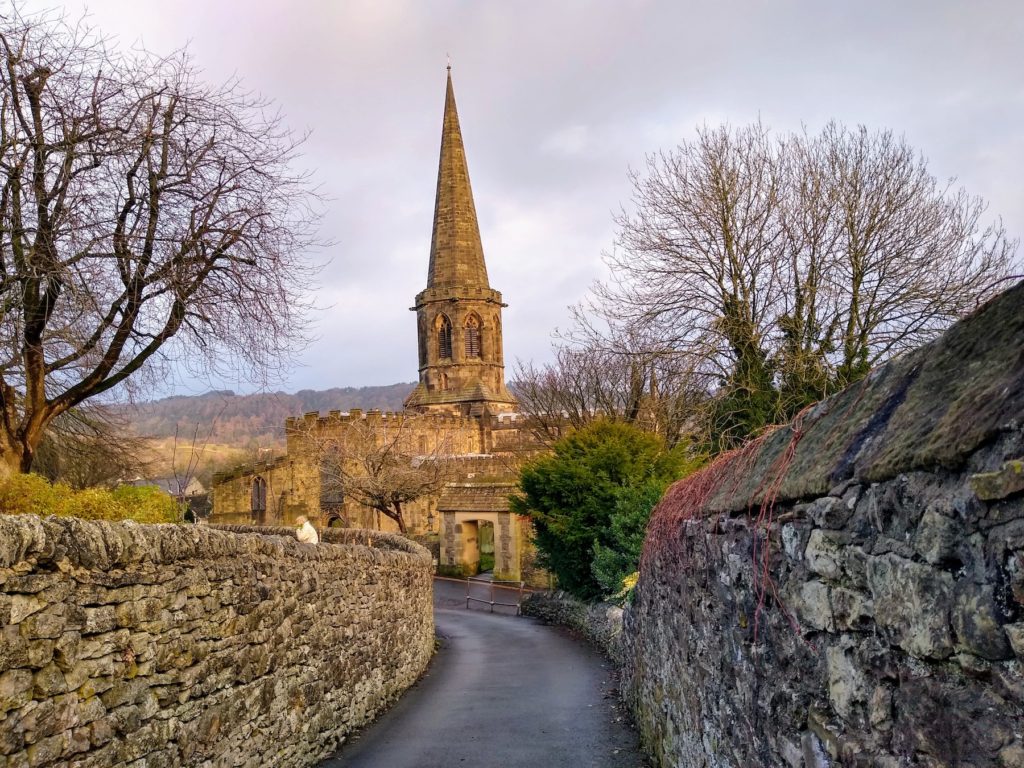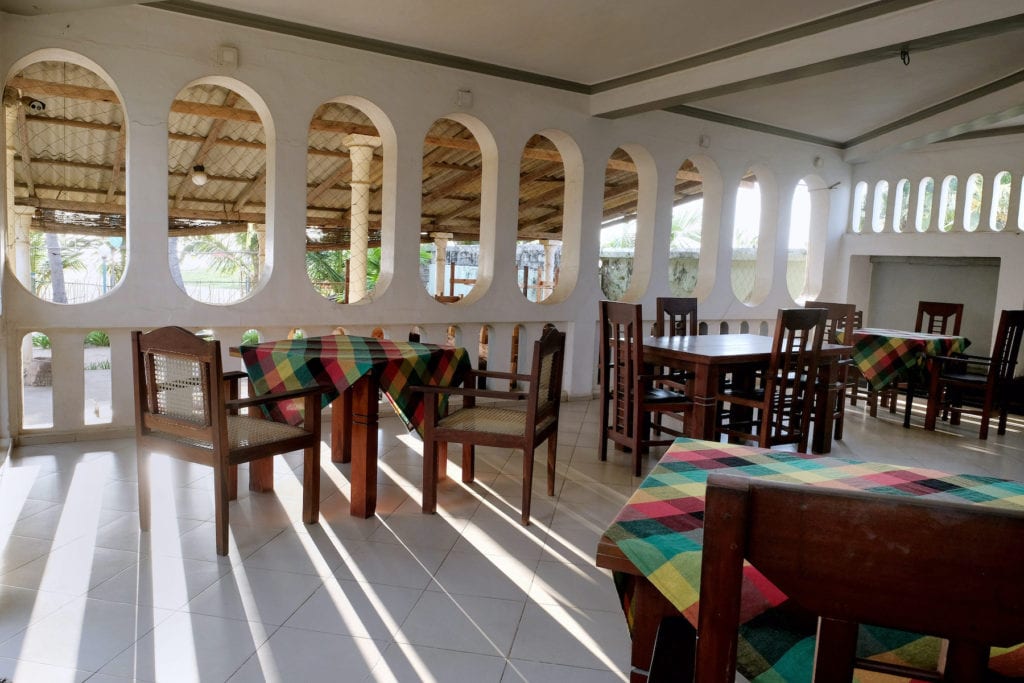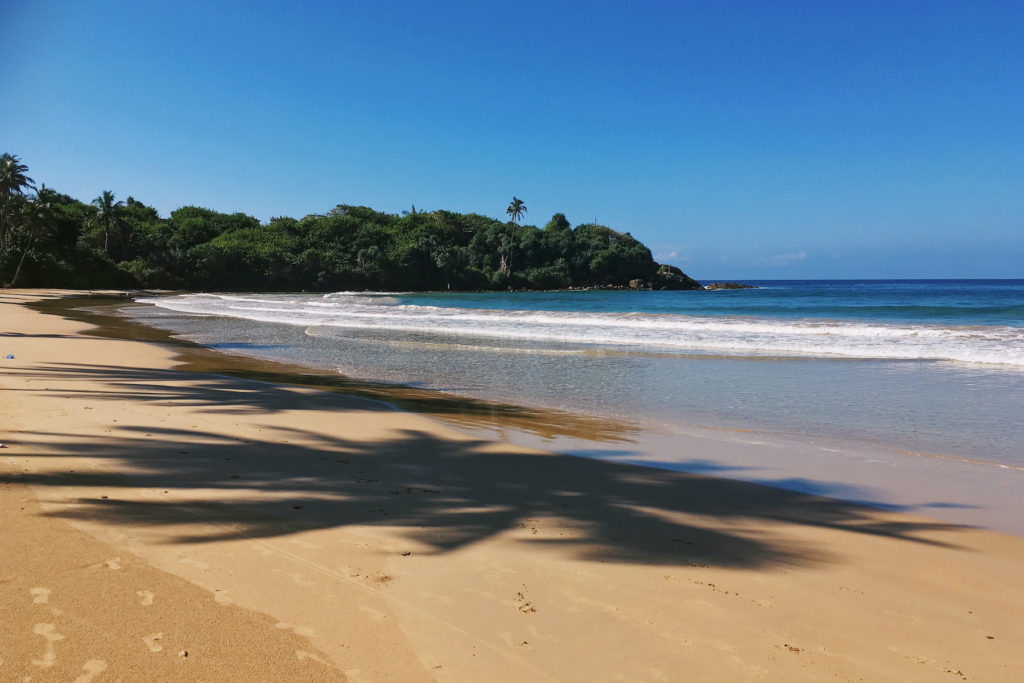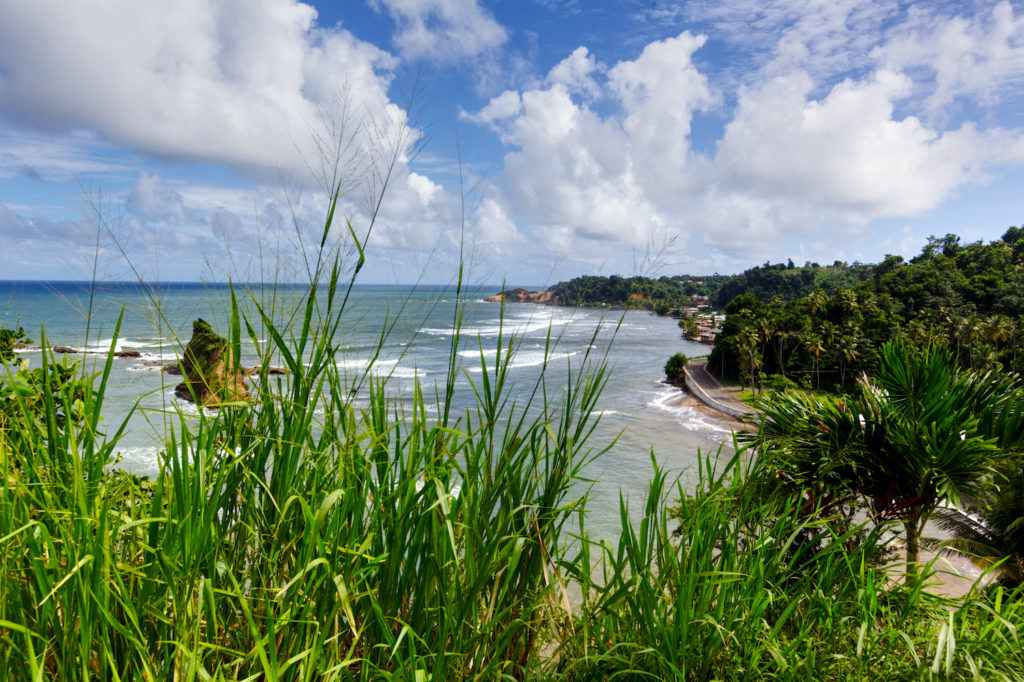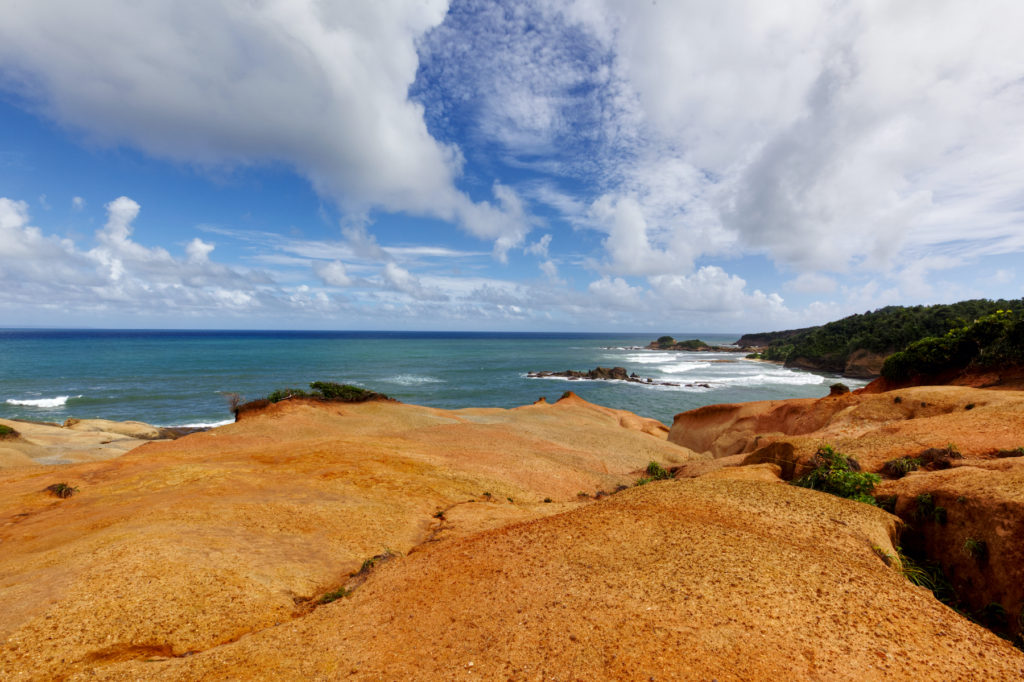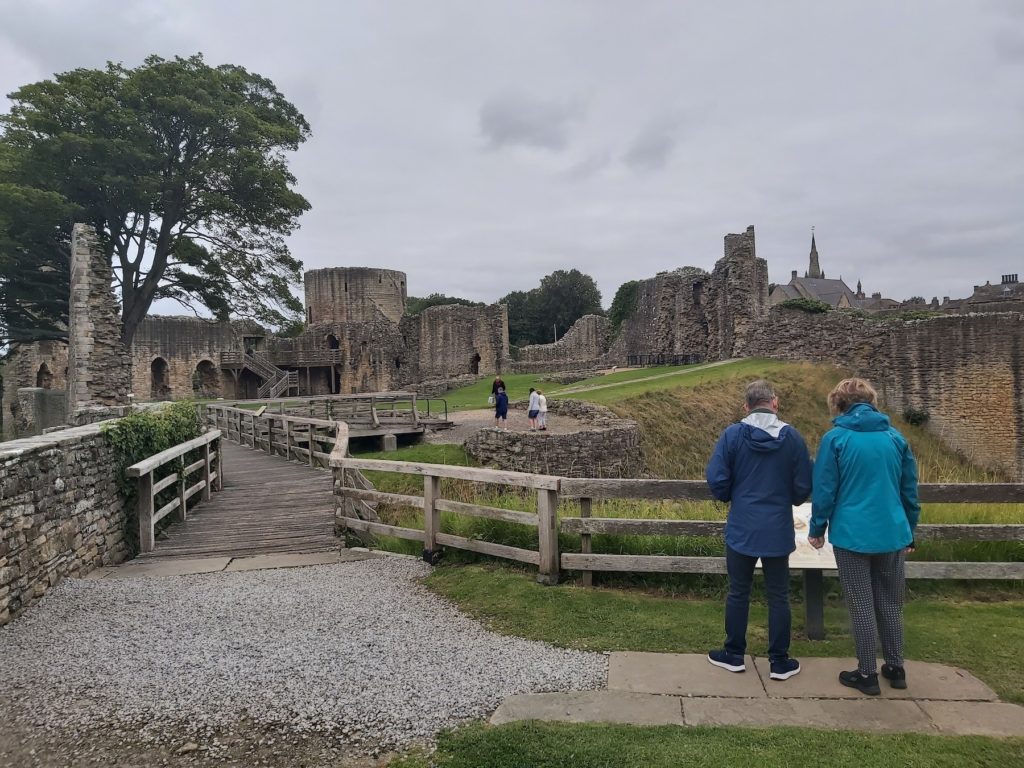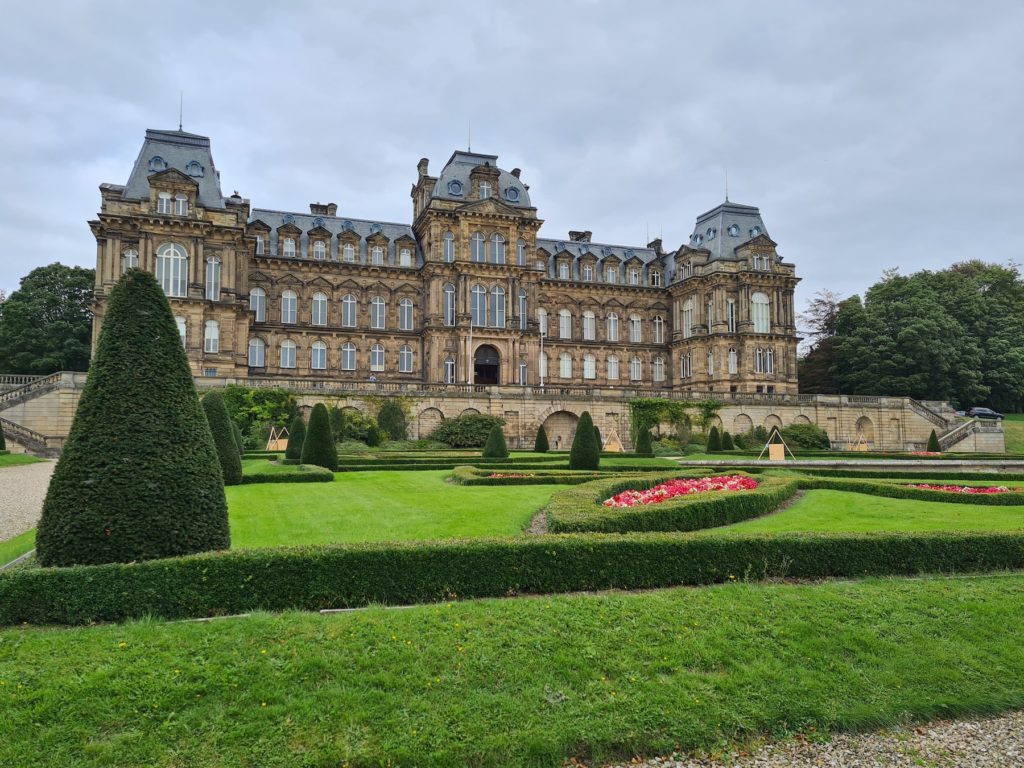It has been a year to the day since the first stay at home order was issued in the UK, a move mirrored the world over and one that subsequently saw global travel ground to a near halt.
While we’re sure most people would rather forget the last 12 months, this solemn anniversary has prompted us to reflect upon our grounded year and consider how it may affect our future relationship with travel. And who better to ask than some of our authors?
Hilary Bradt, UK
Founder and author of guides to Exmoor National Park, North Devon & Exmoor, South Devon & Dartmoor, East Devon & The Jurassic Coast and Socotra
In all the doom and gloom that the pandemic has inspired, I have, I’m embarrassed to say, had a lovely time during the past year. Living in Devon I have glorious countryside on my doorstep, so during the first lockdown (and without breaking the rules) I was able to explore hitherto unknown footpaths and enjoy the glorious spring weather.
In the summer, I got together with various friends to walk the 117-mile Devon Coast to Coast Trail, which has been on my radar for years but I’ve never had time to do. And realising that I should stop moaning about being too old for this sort of thing (12 miles in a day is perfectly doable if you take your time) I then did the Coleridge Way (57 miles) in Exmoor in October.
I’ve spent this year’s lockdown keeping fit with 3-mile runs every couple of days in preparation for the next long-distance trail, St Oswald’s Way in Northumberland (97 miles, I think). The Three Old Crones will be walking it – an old college friend and I, who are celebrating our 80th birthdays this year, and the other, younger Crone, my sister, will be bouncing cheerily ahead giving us encouragement. Of course, we’ll have the Slow Northumberland guide to hand so we don’t miss out on any sightseeing.
Adrian Phillips, UK
Managing Director
I’ve spent most of the pandemic cooped up in London, juggling the intense efforts we’ve all been making to keep Bradt on an even keel with the even more intense efforts required to home-school six-year-old twins…
I had several trips scheduled for 2020 to fulfil magazine commissions, from a brief hop over to Guernsey to a bucket-list visit to Ethiopia. All were postponed. However, in the brief summer window between lockdowns I managed to arrange two last-minute family excursions to the French Pyrenees and Sardinia, enjoying activities including paddle-boarding, walking with huskies and lunching with shepherds high in the mountains. These were places perfectly suited to socially distanced tourism, but their focus on wild nature also satisfied a thirst for the outdoors that I know many have experienced during the lockdown.
I’m optimistic about the future of travel. I believe that – for a time at least – people will set out with a heightened appreciation of the world around them, and a fresh desire to explore deeply and experience things vividly.
Where next for me? Well, I have writing assignments on Egypt, Hungary and Norway’s Vesteralen archipelago in the pipeline. I can’t know for sure when these trips will actually happen, of course, but they certainly feel closer than they did last year! In the meantime, our family is waving goodbye to Harrow and moving to a Buckinghamshire spot with a river on the doorstep and a marsh at the back. And space all round to breathe.
Oscar Scafidi, Tunisia
Author of our Angola and Equatorial Guinea guides
I am writing this exactly one year since the Covid-19 pandemic began affecting life here in Tunisia. The first official case was detected on 2 March 2020, and 20 days later we began a 24/7 lockdown that would last for over two months. I have been living in the capital, Tunis, since August 2019, writing and researching a new Bradt guide to the country, leaving only for a few days in December 2020 for Christmas. It has been the period of the least air travel I have ever completed in my life.
Despite limited overseas travel, I’ve managed to explore and enjoy much of this country over the last 12 months, and for that I feel very lucky. My friends and I were able to race dolphins at sunset in a sailboat off the coast of Cap Bon. I ploughed my 4×4 over sand dunes in Tunisia’s Sahara to find obscure Star Wars filming sites, and up rocky hills to find Rommel’s headquarters from World War II.
I learned to kitesurf off Djerba island. More recently, we tracked the very rare Scimitar oryx through the unique Acacia-filled savannah of Bou-Hedma National Park. Whether it was the UNESCO World Heritage Site at Dougga or the salt flats of Chott el Djerid, these experiences were made all the more special by the complete lack of tourists – I often had sites to myself.
My understanding of the integral nature of tourism to local communities has certainly been expanded during this pandemic. It has been very sad to see the difficult situation many small operators now find themselves in. One of my aims throughout this guidebook research process has been to try and highlight some of these local businesses via my YouTube channel and encourage more domestic tourism until the world opens back up again.
My future travel plans remain cautiously optimistic. I have much research still to do here in Tunisia, so it is unlikely I will be jumping on a plane any time soon. However, I would like to see my family and friends back in Europe, whom I have not seen since 2019, so that is likely my first travel destination. I also promised myself that as a reward for finishing the research process here in Tunisia, I would head over the border and explore Algeria via a long overland trip, but this all remains heavily dependent on the evolving pandemic situation. We will see!
Maria Oleynik, Iran
Author of our Iran guide
My life was once about weekends away and flying across Europe visiting friends, but since my move to Iran two years ago and the pandemic hit, it has all changed – somewhat for the better.
Iran was one of the hardest hit countries in the early months, imposing strict lockdowns in April and May. But since restrictions have lifted, my focus has shifted to nature travel – as is the case for many people – and in this respect, Iran has everything one could wish for. Over the last 12 months I have skied more than ever before, and have even started ski touring. An unplanned trip to Kamchatka – Russia’s far east – has been the main motivation for that.
Last autumn it became possible to travel between Iran and Russia, my homeland, although at exorbitant prices (which I believe will now be the new reality of international travel). I flew home and was surprised to see that, overall, business as usual, just with a mask on. While there, I decided to make the most of being able to travel and bought a last-minute 9-hour flight to Kamchatka – as far east in Russia as one can get.
This remote, 1,250km-long peninsula is simply a dream come true for outdoor enthusiasts, with opportunities to hike up or ski down an active volcano, before tucking into the freshest fish and caviar. My first trip to Kamchatka was short, but in May this year, I am going back to put to start the research for the very first Bradt guide to the region, and to put my ski touring skills into practice. I cannot wait.
Dana Facaros, France
Author of our regional guides to Northern Greece, Emilia-Romagna, Friuli Venezia Giulia
One of the ironies about the lockdowns and our still ongoing curfews in France is that living in the very rural Lot Valley was one of the best places to be… instead of one of the most inconvenient! All along we’ve had (and still have) one of the lowest Covid rates in the country, meaning that many Parisians poured down here last summer (when national travel was allowed), making it feel like a normal July and August, except everyone was French instead of the usual mix of nationalities.
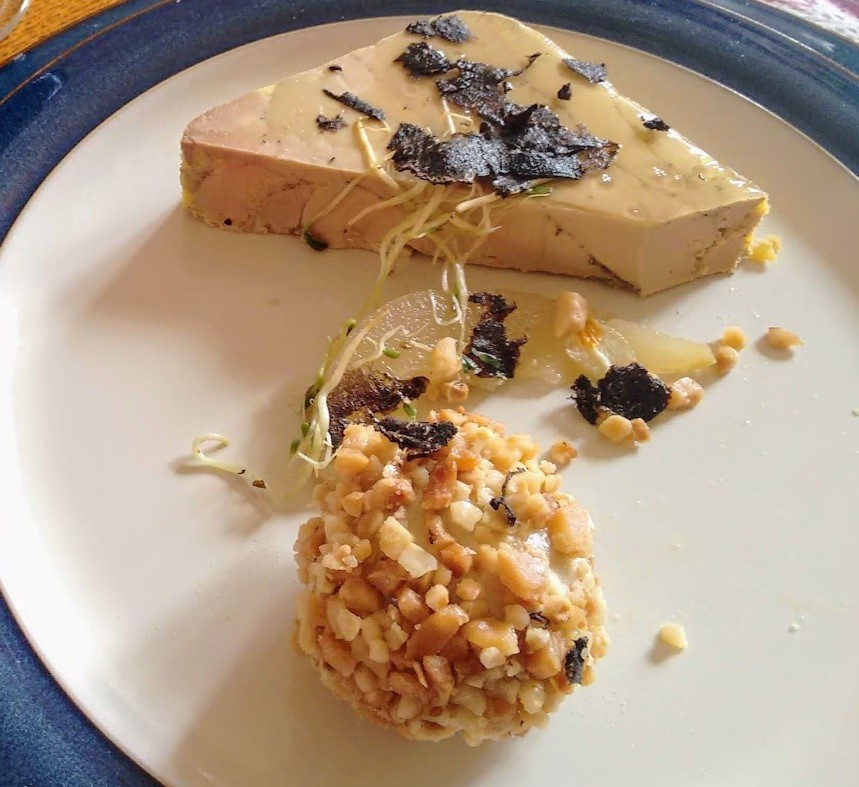
There were outdoor markets and vide greniers (the French answer to boot sales), with one-way systems in place to ensure social distancing. Our local vineyards stayed opened, too (in France, naturally, wine is essential!) so we could stock up our refillable box with 11 litres of vin de Cahors for tuppence – which helped soften the lockdown pain. Some very smart restaurants have even been doing take-aways with truffles!
Travel now seems a privilege that when we are allowed to do so again, I suspect everyone will appreciate it so much more and not take it for granted. As we shouldn’t!
Helen Moat, UK
Author of our Slow Travel guide to the Peak District
In summer 2019, my husband and I purchased a small campervan. Spontaneously, we’d head off for weekends in Wales or on the English coast. At the end of that summer, we spent 18 days exploring Scotland in our van, taking our freedom for granted. We never imagined we’d spend most of 2020 confined to Derbyshire where I live.
We had a lucky break in September, however, booking the Harwich to Hook ferry two nights before we left (just to be sure) and spent three glorious weeks in Germany, exploring its many historical towns of half-timbered houses and hilltop castles. The days were long and warm, and we appreciated our freedom to travel like never before.
Has Covid changed how I feel about travel? Yes, in many ways. I realise now it’s a privilege, not a right. I realise, environmentally, we have paid a huge price for our freedom to travel. It’s raised many questions about sustainability, and it’s confirmed the value of slow travel to me.
It’s also made me realise how lovely it is to be spontaneous, going with the flow. In Germany we made it up as we went along. Most importantly, we decided not to drive huge distances and to linger longer at each campsite. This will be our model for the future: less ground covered, more time spent in destinations. Bringing our bicycles with us will ensure we spend as much time on two wheels as in the van. I look forward to more slow, slow travel in our beautiful continent of Europe.
There have been other upsides to Covid too: we’ve realised we have a world of beauty on our doorstep, right on the edge of the Peak District.
Nancy Chuang, Sri Lanka
Updater of our Sri Lanka guide
Days into a holiday from guidebook research in Sri Lanka, I abruptly returned from India on 14 March and soon entered the Western Province’s 67-day curfew. Vesak, Eid, Easter, and Sinhala/Tamil New Year were spent in isolation, and tourists barred until January this year.
Physically, lockdown was easy. I’d lucked into a cheap hotel on Negombo’s beach, which wasn’t patrolled for curfew-breakers. Rice and curry was plentiful, and as the sole guest, I drained their internet on Zoom parties. Emotionally, it was more testing – I ached watching both the virus and the movement for racial justice course through the US, my home.
I dawdled until July while businesses slowly re-opened, worried about a Sri Lanka in which anyone in a crowded temple could be a disease vector. That first five-hour bus ride – to major historical city Anuradhapura – was nerve-wracking, because as an ethnically Chinese woman I could spark virus fears everywhere I went. But after months of airport closure and the 2019 Easter bombing keeping foreigners away, I was also excited to learn how hotels and restaurants would build a more sustainable local market.
Guidebook research also became leisurely. Half a day spent reviewing listings, the other half spent beaching. Multiple visits to spot leopards at Yala National Park. Joining Jaffna’s cacophonous Nallur festival several evenings in a row. Documenting a renowned batik artist in Matara, then staying to design my own piece.
With second waves rising worldwide, I moved to Colombo, more relaxed and social than new New York. Five months later, I even took a beach excursion in low-key Hiriketiya, starkly altered from last year’s tourist-overrun village. Plainly obvious: my pandemic has been extraordinarily blessed.
As a somewhat selfish traveller, a soloist basing itineraries around quirky photography interests, the year of accidentally living abroad convinced me to prioritise visiting family and friends. I’m envisioning a future where we continue working remotely, but define ‘remote’ broadly, allowing for extended time with long-distance loved ones. West Africa is calling, but so are the pandemic babies of my Western European friends.
Where will I go when I finally leave Sri Lanka? Los Angeles. I desperately miss my home in New York, but can’t wait to hug my vaccinated parents.
Paul Crask, Dominica
Author of our Dominica and Grenada guides
Last year, my planned island-hop from my home in Dominica to Grenada to update Bradt’s guidebook was put on indefinite hold. Our borders were closed, inter-island flights and ferries stopped, cruise ships disappeared, and we went into lockdown. The rum shops were shuttered, and the beaches, waterfalls, and hiking trails were all off limits. But for the parrots, everything went quiet.
It lasted a month or so. Since then, we have lived near normally (though we do wear masks – often decoratively around our chins). The ferries and the cruise ships are still absent, but you can fly here now. We even have vaccines.
The tourist board came up with a ‘managed’ experience in the hope of attracting those desperate enough to travel and get away. ‘Safe In Nature’ means you can spend your mandatory quarantine period exploring the island with ‘Covid-certified guides’, then, when you have been tested and cleared (after five to seven days), you are free to explore.
People do it – I guess being in Dominica is a lot better than being in many places right now – but it serves to remind me how odd things are, how restricted travel has become, and how isolated from – yet entirely dependent upon – the rest of the world our island really is.
Our border management and health systems have been effective – we have very few active cases despite the ever present ‘back door’ travel (boats that make the journey between Dominica and our French island neighbours under cover of darkness).
I dream of making that trip myself. But on the ferry, when things are back to normal – if that ever can be – and I can island-hop again, to Grenada to write my book, or to Guadeloupe where I can enjoy French wine, paté and warm baguettes.
Neil and Helen Matthews, UK
Authors of our Slow Travel guide to the Chilterns & Thames Valley
We’ve been very lucky. We were planning to stay in the British Isles in 2020, so we haven’t missed out on foreign travel. We also live in the central Chilterns, where there are plenty of scenic walks close to home. And working from home saves a lot on train fares and time!
In-between lockdowns we managed a road trip: north via Stratford-upon-Avon to Cumbria, over the border into Dumfries and Galloway, crossing east to the Scottish Borders and returning home via northeast England.
One of the highlights was County Durham’s Barnard Castle, the town which hit the headlines in early 2020 when a certain government advisor drove there with his family. He’d long gone by the time we got there… But it’s a picturesque place, with its eponymous castle and the splendid Bowes Museum well worth visiting. The road trip was our first in over 15 years. We didn’t miss airports at all.
For the rest of 2021 – subject, of course, to some sort of normality returning – our plans involve a lot more British travel by car and train with the occasional plane. We’re researching and writing a new Bradt guide on heritage-related breaks. It promises to be a great opportunity to enjoy our home islands; not just the British mainland but Jersey, the Isle of Wight, Anglesey and Orkney. We can’t wait!
